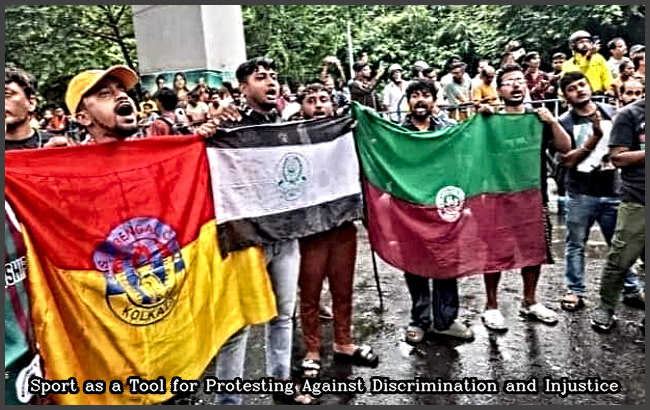Sport as a Tool for Protesting Against Discrimination and Injustice
Sport has always been a powerful tool for bringing people together, and it has often been used as a means of protesting against discrimination and injustice. The formation of Mohun Bagan and East Bengal football clubs in India is a prime example of how sport can be used to unite people and give them a voice.
In the early 20th century, India was under British colonial rule, and the Indian people were subjected to various forms of discrimination and oppression. One of the most visible forms of discrimination was in the realm of sport, where Indians were often excluded from participating in mainstream sports like football and cricket.
In response to this discrimination, a group of young Indian footballers came together to form the Mohun Bagan Athletic Club in 1889. This was the first Indian football club to be formed, and it quickly became a symbol of Indian resistance against British colonialism. The club’s first major victory came in 1911, when they defeated the East Yorkshire Regiment in the IFA Shield final, becoming the first Indian team to win a major football tournament.
The formation of Mohun Bagan was followed by the creation of another football club, East Bengal, in 1920. Like Mohun Bagan, East Bengal was formed as a response to the discrimination faced by Indian footballers, and it quickly became a symbol of Indian resistance against British colonialism.
The formation of these two football clubs was not just about sport; it was about giving a voice to the Indian people and challenging the status quo. By coming together to form these clubs, Indian footballers were able to challenge the notion that they were inferior to their British counterparts, and they were able to show that they were just as capable of playing football at a high level.
The role of sport in protesting against discrimination and injustice is at the core of what is understood as ‘Olympism’. The Olympic Games were founded on the principles of fair play, respect, and non-discrimination, and they have always been seen as a platform for promoting social justice and equality.
Sport has the power to unite people from different backgrounds and cultures, and it can serve as a mechanism for inclusion and global harmony. It is much more than just medals and records; it is a way of bringing people together and giving them a voice.
In conclusion, the formation of Mohun Bagan and East Bengal football clubs in India is a powerful example of how sport can be used to protest against discrimination and injustice. These clubs were not just about football; they were about giving a voice to the Indian people and challenging the status quo. Sport has the power to unite people and promote social justice, and it is important that we continue to use it as a tool for positive change.

